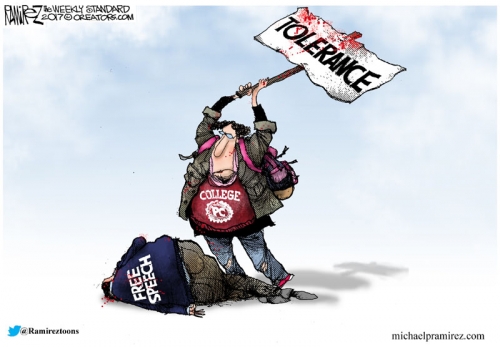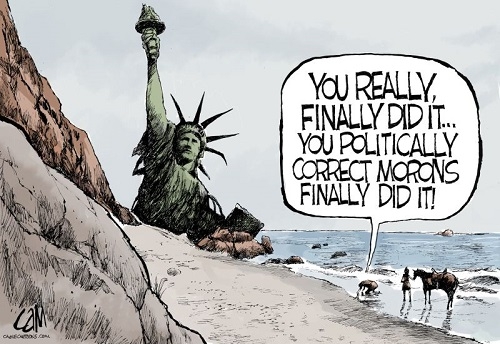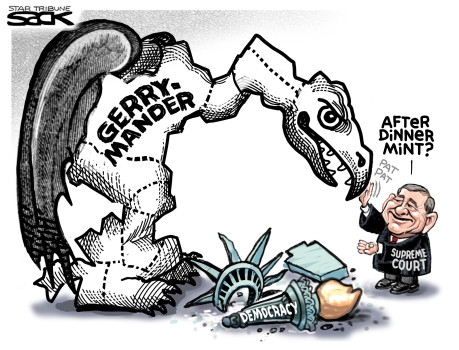vendredi, 20 décembre 2019
Georges Valois pour penser le "grand empêchement" contemporain?

Georges Valois pour penser le "grand empêchement" contemporain?
Ecouter: 
Avec:
Guillaume Travers, journaliste à la revue "éléments"
Pierre Le Vigan, essayiste (en photo)
Thème : « Georges Valois, pour penser le « grand empêchement » contemporain ? »
Pour écouter (URL):
https://soundcloud.com/patrick-p-h-le/georges-valois-pour-penser-le-grand-empechement-contemporain

00:19 Publié dans Histoire, Hommages | Lien permanent | Commentaires (0) | Tags : georges valois, france, histoire, années 20, années 30, théorie politique, philosophie politique, argent, sciences politiues, politologie |  |
|  del.icio.us |
del.icio.us |  |
|  Digg |
Digg | ![]() Facebook
Facebook
mercredi, 18 septembre 2019
A false open society

A false open society
By Keith Preston
Ex: http://hlmenckenclub.org
The Myth of the Open Society
One of the pervasive myths of our time is that we live in an open society where contentious issues, and serious questions of public policy, are supposedly addressed by means of Socratic dialogue, or open discourse reflecting the principles of Voltaire, Thomas Jefferson or John Stuart Mill. For reasons that I will explain, this claim of an open society is false. I could certainly discuss multiple ways in which the open society claim is problematic. For example, I could examine many parallel difficulties such as over criminalization, overregulation, increasingly greater centralization, and ever pervasive bureaucratization. However, for the purpose of this discussion, I want to focus on ideological conformity, and the way in which ideological conformity is enforced in liberal democratic societies.
“Liberal Illiberalisms”
We live in an era of what has been called “liberal illiberalisms” by the libertarian writer Cathy Young. Young has provided multiple examples of how enforced ideological conformity works. Many such illustrations can be found and I will briefly mention a few examples.
-
In 2015, Yale’s Intercultural Affairs Council issued a warning against potentially offensive Halloween costumes. A professor named Erika Christakis objected that such a directive had the effect of undermining the students’ freedom of expression. The reaction was a barrage of indignation being levied against Christakis by members of the Yale academic community, including students as well as faculty and staff members. Christakis and her husband, also a faculty member, were physically confronted by student protestors. The students subsequently demanded that the couple be terminated by the university. The Yale University administration failed to support the Christakises who subsequently stepped down from their positions.
-
In 2015, a photo shoot took place in England to promote the film Suffragette, which is about the battle for the right of English women to vote. In the film, Meryl Streep plays the role of Emmeline Pankhurst, a leading British suffragist. Streep and three other actresses were shown wearing a T-shirt with a quote from Pankhurst that read, “I’d rather be a rebel than a slave.” The slogan was attacked for supposedly “trivializing the black experience of slavery and allowing white women to claim it as their own.” Others criticized the use of the words “rebel” and “slave,” claiming these terms amounted to the glorification of slavery as practiced during the Confederacy, even though the film had nothing to do with the Confederacy, or American history generally.
-
In 2014, the British National Student Union rejected a motion condemning ISIS on the grounds that the resolution could promote Islamophobia.
-
In 2015, the same reason was cited by the University of Minnesota to oppose a commemoration of the victims of the September 11, 2001, terrorist incident.
-
Cathy Young points out how accusations of cultural appropriation are used to attack everything from yoga classes (which were banned at the University of Ottawa, apparently on the grounds that yoga involves the appropriation of Hindu culture) to white people wearing the dreadlocks hairstyle to a kimono exhibit at the Boston Museum of Fine Arts.
-
Ethnic food has been attacked as form of cultural appropriation. For instance, a burrito shop in Portland was closed after its white female owners’ described their having collected recipes white on a vacation in Mexico. Because of this, they were accused of stealing from Mexican culture, and practicing what was called “culinary white supremacy.”
-
Among others that have been attacked in this way was a professor who was reprimanded for “merely mentioning the belief that transgender identities are ‘not real’” or “female students having a ‘slut-shamey’ conversation about a fellow student described as a ‘bro-hopper.’”
-
Some universities have put up posters warning against the use of supposedly offensive words and phrases such as “crazy,” “you guys,” “illegal alien,” or “did you lose weight?”
-
The University of California established guidelines for avoiding microaggressions such as “asking an immigrant where she or he is from, encouraging a quiet Asian-American or Latino to speak up, or expressing the opinion that women in America today have the same opportunities as men.”
-
Within the pro-choice movement, pro-abortion rights activists have been asked to “avoid gender-specific language (such as ‘women’) so as to be inclusive to female-bodied individuals who may get pregnant and seek abortions but identify as male or non-binary.” Likewise, “an abortion rights fundraising event humorously dubbed ‘Night of a Thousand Vaginas’ was met with anger from offended activists who thought it excluded transgender women.”

Certainly, many other similar examples of thought and speech control could be cited. But the question that arises involves the matter where sentiments and actions such as these originate from.
Political Correctness as an Ideological Superstructure
At times, I am asked by leftists why I pay so much attention to this issue when surely my time might be better spent focusing on hate crimes, or other matters that are considered to be more substantive. I do so because the ideological extremism that I just described is presently a rising force in the wider society, concentrated in influential sectors, and gradually becoming part of the elite’s ideological superstructure. In fact, in order to understand the phenomenon that I am presently describing it may be helpful to engage in the intellectual appropriation of certain insights from Marxist theory. According to Marx, all societies have an ideological superstructure that is used to justify the existing society’s dominant institutions. In the ancient world, the superstructure may have been rooted in the idea that the emperor was a descendent of the sun-god. In medieval societies, the divine right of kings served as the superstructure. In modern democracies, the superstructure is derived from the idea that the government is elected by the people. However, Marx argued that beneath this ideological superstructure is a material base that he described as a substructure. The substructure involves certain sectors of the economy or forms of production that are associated with the interests of particular classes.
I would suggest that at present there is indeed an ideological superstructure that exists in societies like our own, and that there is a system of enforced conformity to this ideology. The ideological superstructure is what is commonly called “political correctness.” It is also important to understand that political correctness comes in multiple forms. An individual that frequently reads and comments on my work has used an analogy to the Church. We might say that there is a high church liberalism and a low church liberalism. Low church liberals are simply those who sincerely favor equal opportunity in education and employment, being nice to gay people, holds to the “melting pot” view of immigration, or perhaps favor universal healthcare. I know many people like this.
However, there is also a high church liberalism that is obsessed with the eradication of offensive history, promotes concepts such as cultural appropriation and micro-aggressions, insists on calling a manhole a “people hole,” and that takes offense to Halloween costumes, or to the serving of tacos in a university cafeteria. Recently, a representative of the People for the Ethical Treatment of Animals made the claim that milk is a symbol of white supremacy. These are the kinds of people that think it is perfectly fine if a 12 year old undergoes transgender surgery. It should also be acknowledged that there is a far-left and a center-left version of political correctness. The far-left version is represented by the campus protestors, the Antifa, the neo-Maoists, and other representatives of the extreme left. The center-left version is often manifested as a blend of PC culture with the American civil religion or civic nationalism. For example, it will be said that the reason the United States is a great nation is because we have gay marriage.
The Enforcement of Ideological Conformity
For the most part, this ideological superstructure is not enforced through traditional state repression, such as a knock on the door in the middle of the night which results in someone getting tossed in a gulag. However, there are some disturbing trends in this area, such as the fact that Marine Le Pen was recently ordered by a French court to undergo a psychiatric examination. This practice of declaring political dissidents to be mentally ill and responding with coercive psychiatric intervention is straight out of the Soviet playbook. But for the most part, there is little formal censorship in the Western democracies (with some exceptions related to fringe areas like Holocaust denial).
Instead, the enforcement of ideological conformity is farmed out to other institutions, such as the media, educational institutions, corporations, and technology companies. The means of enforcement involve the use of social, economic, and professional sanctions rather than the outright criminalization of dissidents. Ideological conformity is also enforced by means of extra-legal methods, such mob violence, shouting down speakers, the harassment political opponents or public figures in public places or even at their private homes, and the aggressive vigilante activities of groups such as the Antifa. It is for this reason that it is often necessary for gatherings of dissidents to take place on a clandestine basis. The proponents of the ideology of political correctness are heavily concentrated in influential sectors of society. Among the more significant examples are the electronic media and professional journalism, universities and public schools, the entertainment industry, left-wing professionals such as attorneys and healthcare specialists, the left-wing of clergy, the public sector bureaucracy, social services and human services, advertising, public relations, and corporate human resources and diversity officers.
However, one of the most significant sectors of these kinds involves technology companies. For example, Facebook recently purged over 800 pages with millions of followers, including pages with left-wing as well as right-wing perspectives, with the common denominator being that all of the purged pages represented some kind of anti-establishment perspective. It is also interesting to note that similar methods are used by the professional “watchdogs,” which typically focus most of their attention on the Right, but also attack leftist, African-American or other minority perspectives that are also considered to be outside the realm of acceptable liberal opinion.
The Socioeconomic and Demographic Basis of Political Correctness
It should also be noted that what I have called high church liberalism represents only a very small number of people when compared to the general public. A recent study involving the present political divisions in the United States was conducted by More in Common, a British organization that studies political conflict around the world. In their recently released report called “Hidden Tribes,” a term that was used to describe America’s major political divisions, it was observed that political correctness is overwhelmingly unpopular among all races, classes, religions, genders, and political affiliations in the United States. Approximately 80% of Americans expressed opposition to political correctness. The study also found that political correctness is more unpopular among Native Americans, Asians, and Hispanics than among whites, and only slightly more unpopular among whites than among blacks, with nearly three quarters of African-Americans expressing opposition to political correctness.
The authors of the report suggest that Americans are politically divided into seven so-called “tribes” with progressive activists constituting 8%, traditional liberals 11%, passive liberals 15%, the politically disengaged 26%, moderates 15%, traditional conservatives 19%, and devoted conservatives 6%.The only political affiliation of the seven where the majority of the “tribe” expressed a favorable view of political correctness was “progressive activists” who are only 8%. Even a substantial minority of progressives expressed criticism of political correctness (about 30%). The identity of the “progressive activist” political tribe was overwhelmingly white, affluent, and educated, along with a smaller group of elites among traditional minorities. In other words, the proponents of political correctness are largely concentrated in the left-wing of the upper middle class, among urban cosmopolitan professionals, and the newly rich from outside the traditional elite whose wealth has been generated by newer, high-tech industries. These sectors constitute what we might call the “left-wing of capitalism.”
It is interesting that many on the Right continue to fetishize capitalism when it has to be considered that present day capitalism differs considerably from the capitalism of the elite, top hat wearing plutocratic families of the nineteenth and twentieth century. Today, capitalism is just as likely to be represented by Silicon Valley, Hollywood, and Madison Avenue as it is by the Chamber of Commerce, and by figures such as Mark Zuckerberg, Bill Gates, Jeff Bezos, Oprah Winfrey, Warren Buffet or George Soros. In fact, the sociologist Joel Kotkin, himself a centrist Democrat, has argued that an alliance has developed what he calls the “techno-oligarchs” of Silicon Valley and the mass media, and what he terms the “new clerisy” associated with the various sectors that are involved with ideas, ranging from journalism to education to advertising.

As an aside, I would note that, contrary to another myth, from a historical perspective it was the left-wing of the upper-middle class that was the class base of leftist revolutions. It could be reasonably argued that the liberal revolutions of the eighteenth and nineteenth century were driven by the left-wing of an upwardly mobile middle class whose political ambitions were frustrated by the existing political order. I would also suggest that the real class basis for the Marxist revolutions of the twentieth century likewise originated from left-leaning middle class sectors. For example, the famous Communist leaders from the twentieth century were mostly teachers, doctors, lawyers, and other middle class professionals, with only Stalin himself originating from what could be considered a proletarian background. I would suggest that present day political correctness is a manifestation of the rising left-wing of the upper middle class. Political correctness is the foundation of their ideological superstructure with the technology industry and the various professional sectors previously mentioned being their material base.
Solutions
If there are any solutions to be found to the challenges that are presented by this forced ideological conformity, one of these might be to extend First Amendment jurisprudence to corporations, media companies, technology companies, schools and universities, and cyberspace. In early American history, the Bill of Rights was considered by American jurisprudence to apply only to the states and localities. As the power of the federal government has grown, and the states and localities have largely been reduced to administrative units, constitutional jurisprudence has been extended to the states and localities. It may be necessary to extend the Bill of Rights to the aforementioned institutions since these institutions are essentially the equivalent of private states. For example, I would suggest that technology companies are not private businesses, but crony-capitalist or state-capitalist institutions that have made billions of dollars by piggybacking on technology that was developed by the government with taxpayer money. Therefore, cyberspace should be regarded as public space (like parks, streets, and sidewalks), and the fight for free speech in cyberspace might be compared to free speech fights in the early 20th century by the labor movement, or Free Speech movement of the 1960s. At present, the center-right has come to dominate the Supreme Court, and much of the federal judiciary. Therefore, this may be an opportunity, perhaps the last there will ever be, for constitutional jurisprudence regarding the First Amendment to be revised in the way that I have suggested.
10:27 Publié dans Actualité, Sociologie, Théorie politique | Lien permanent | Commentaires (0) | Tags : société ouverte, société fermée, théorie politique, keith preston, politologie, sciences politiues, politiquement correct, politically correct, sociologie |  |
|  del.icio.us |
del.icio.us |  |
|  Digg |
Digg | ![]() Facebook
Facebook


